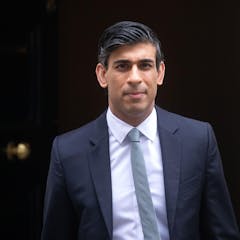
Articles sur Social inequality
Affichage de 1 à 20 de 77 articles

The benefits of AI are transforming modern life — but disparities in digital confidence are leaving some behind.

Agricultural sustainability is as much about power and sovereignty as it is about soil, water and crops.

‘Accentless’ spoken language is the language of the elite, of authority. It’s the version of the language that is used by the people who have traditionally held all the power.

Increasing energy costs pose a challenge for everyone, but the impact is most pronounced for those living in deprived areas.

The pandemic caused untold suffering around the world. It also created a new type of community solidarity rarely seen before. As we enter the post-pandemic era we must maintain that solidarity.

Self-service technologies — like self-checkouts or government service kiosks — are decreasing interactions with other people. This may affect our politics and sense of community.

Facing human threats, Mumbai’s Koli community are taking risk reduction into their own hands – other vulnerable coastal settlements should take note.

Two education researchers say one of the most widely used terms in school reform debates should be retired because of its potential to do more harm than good.

Exposure to diverse microbes boosts our immunity, while spending time in nature restores wellbeing. And COVID reminds us of the risks of new viruses when we intrude on and degrade natural habitats.

A vicious cycle of limited opportunity and poor health.

How two Canadian teams of economists and epidemiologists studied COVID-19 from a social science perspective to show that higher national income inequality is associated with worse COVID outcomes.

Britain’s economic system is built on inequality. Few governments have attempted to rectify this.

Rising household debt in South Korea is crippling many and Squid Game speaks to this very real horror facing many in the country.

A fatherhood researcher argues that US work policies, income inequality, gender attitudes and health care all make it harder for dads to be highly engaged at home.

How do migrants to the UK explore and experience its natural environment – and how does it connect them to their roots?

Why is socio-economic inequality so threatening to complex societies and how can archaeology inform public policies for mitigating it?

The country still has a way to go in addressing the challenges of social inequity. But there has been some progress in every sphere of government.

Despite greater human rights protections, LGBTQ+ people in Canada still face challenges and discrimination when it comes to housing.

The inner suburbs are home to large numbers of workers in jobs vulnerable to the pandemic. If they’re forced to seek cheaper housing in outer suburbs, the urban divide will widen.

A new mapping project shows where different types of disadvantage are most prevalent. The picture is more varied and complex than many people think.
